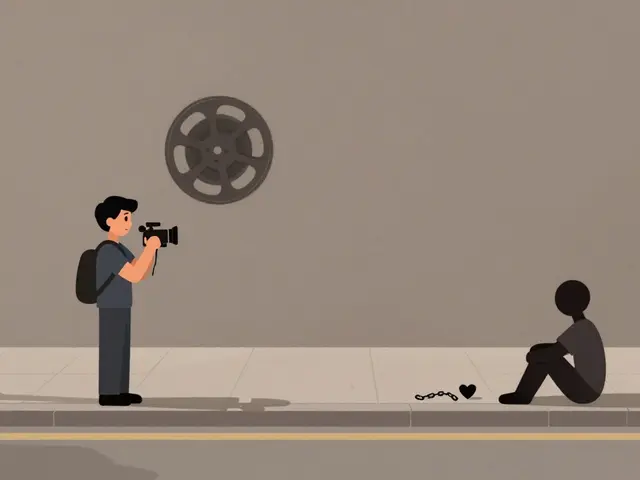Darren Aronofsky: Visionary Filmmaker Behind Psychological Epics
When you think of Darren Aronofsky, a filmmaker who turns inner turmoil into visceral cinema. Also known as the master of psychological intensity, he doesn’t just tell stories—he makes you feel the weight of a character’s unraveling mind. His films aren’t easy to watch. They’re not meant to be. From the claustrophobic descent of Black Swan to the spiraling chaos of Requiem for a Dream, Aronofsky uses camera motion, sound design, and raw performances to pull you into worlds where sanity is a thin layer over something darker.
He doesn’t rely on big budgets or flashy effects. Instead, he leans on psychological thriller, a genre built on internal conflict rather than external threats to drive his narratives. His characters aren’t heroes—they’re broken people chasing something just out of reach: perfection, redemption, escape. That’s why his work connects so deeply with audiences who’ve felt the pull of addiction, ambition, or grief. He also works closely with film directing, a craft that demands total control over tone, rhythm, and visual language. His signature long takes, distorted lenses, and pounding scores aren’t stylistic choices—they’re emotional tools. You don’t watch a scene in an Aronofsky film; you live it.
His films are rarely about plot. They’re about pressure. The pressure of a dancer chasing greatness. The pressure of a scientist chasing immortality. The pressure of a mother watching her child slip away. That’s why his work fits right alongside posts about film narrative, cinematic truth, and how dialogue in drama can carry more weight than action. He’s the kind of director who makes you rethink what cinema can do—not just entertain, but expose.
What you’ll find here isn’t a list of his movies. It’s a collection of insights that help you see why his films stick with you long after the credits roll. Whether it’s how he uses editing to mirror mental breakdowns, or how his storytelling echoes the unreliable narrators of Kurosawa, these posts break down what makes his vision so powerful—and why it still shapes how we think about film today.
16
Darren Aronofsky Essay: The Filmmaker Who Started with Pi
Darren Aronofsky started with a $60,000 film called Pi and became one of indie cinema’s most daring voices. His obsession with madness, bodies, and meaning changed independent filmmaking forever.
Latest Posts
Popular Posts
-
 Villains in Action Cinema: Why Antagonists Define the Thrill
Villains in Action Cinema: Why Antagonists Define the Thrill
-
 Close-Up Camera Shots Tutorial: Connecting Audiences to Characters
Close-Up Camera Shots Tutorial: Connecting Audiences to Characters
-
 Ethics of Subject Relationships in Documentary Filmmaking: Power, Consent, and Follow-Up
Ethics of Subject Relationships in Documentary Filmmaking: Power, Consent, and Follow-Up
-
 Brad Anderson's Dark Underbelly of Normalcy: Film Analysis
Brad Anderson's Dark Underbelly of Normalcy: Film Analysis
-
 MotoGP and IndyCar Streaming Options in 2026: Where to Watch Live Races
MotoGP and IndyCar Streaming Options in 2026: Where to Watch Live Races
Categories
Tags
- streaming services
- video editing
- video production
- parental controls
- Max streaming
- video editing software
- marketing mix
- subscription management
- streaming apps
- video editing tips
- tips
- ROI
- video marketing
- video editing tools
- marketing strategy
- Premiere Pro
- family viewing
- classic cinema
- Kurosawa
- streaming setup



